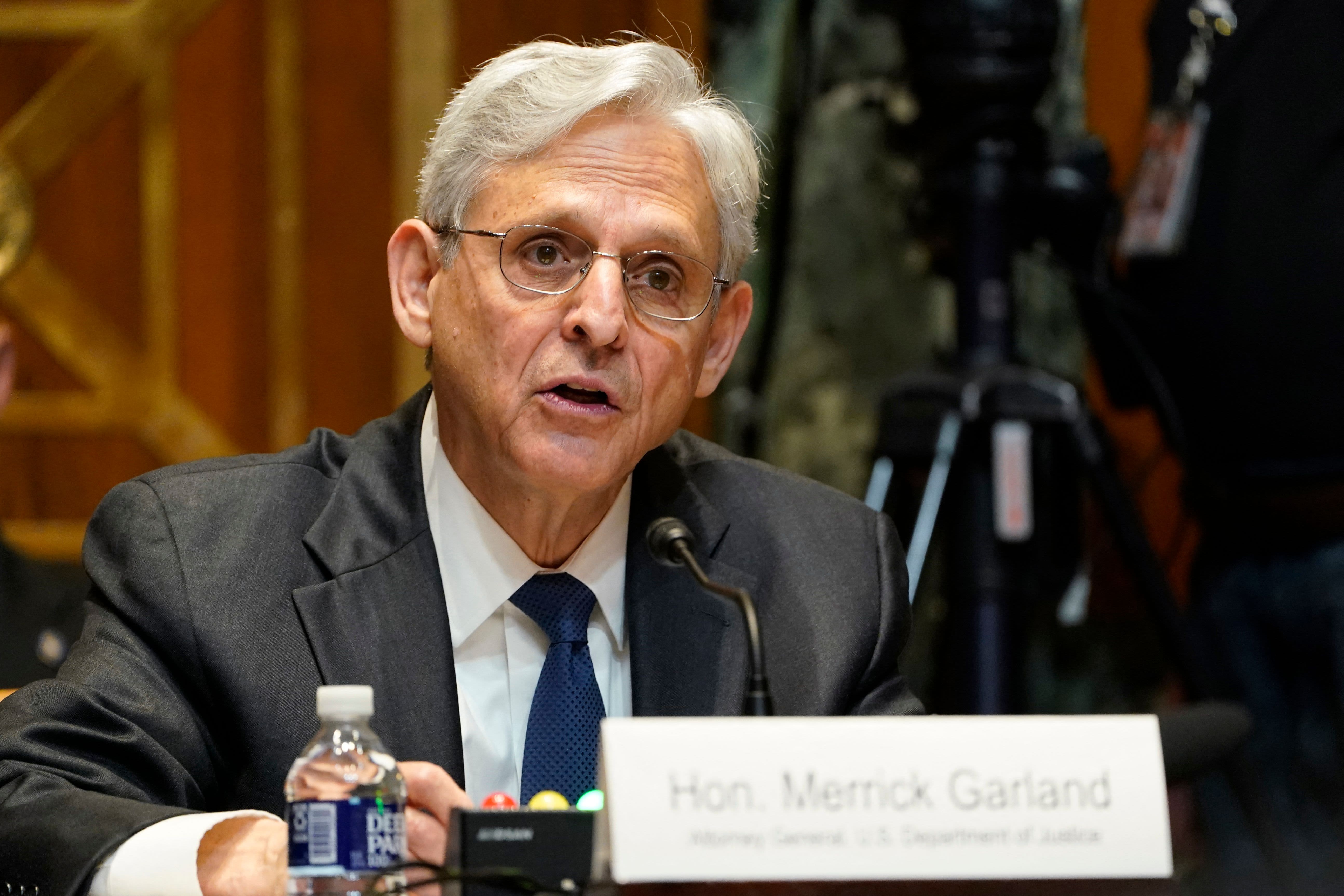Attorney General Garland vows billionaire tax leak to ProPublica will be 'top of my list' to investigate

US Attorney General Merrick Garland testifies before at a hearing of the Senate Appropriations Subcommittee on Commerce, Justice, Science, and Related Agencies on the 2022 proposed budget for the Justice Department, on June 9, 2021, in Washington, DC.
Susan Walsh | AFP | Getty Images
Attorney General Merrick Garland told lawmakers Wednesday that investigating the source of a massive leak of taxpayer information behind an article by investigative news outlet ProPublica will be one of his top priorities.
"I promise you, it will be at the top of my list," Garland assured Sen. Susan Collins, R-Maine, during a budget hearing before the Senate Appropriations Committee.
The former federal judge said that at the moment he knew nothing more than what he learned from reading the sprawling article, which revealed that in some recent years billionaires such as Amazon CEO Jeff Bezos, Tesla CEO Elon Musk, and businessmen Michael Bloomberg, Carl Icahn and George Soros paid no federal income taxes.
"Senator, I take this as seriously as you do. I very well remember what President [Richard] Nixon did in the Watergate period — the creation of enemies lists and the punishment of people through reviewing their tax returns," Garland said. "This is an extremely serious matter. People are entitled, obviously, to great privacy with respect to their tax returns."
The ProPublica article, expected to be the first in a series, did not reveal how the journalists obtained the tax records, and the outlet did not respond to a request for comment. The article says the investigation is based on "a vast trove of Internal Revenue Service data on the tax returns of thousands of the nation's wealthiest people, covering more than 15 years."
The article adds that the tax strategies used by the ultra-wealthy individuals it cited appeared to be perfectly legal. It said the investigation "demolishes the cornerstone myth of the American tax system: that everyone pays their fair share and the richest Americans pay the most."
The outlet published a separate article defending its decision to publish the private records.
Tax information is generally confidential and those who disclosed the documents could be subject to criminal liability.
Garland said that he believed IRS Commissioner Charles Rettig was handling the matter.
"He said that their inspectors were working on it, and I'm sure that that means it will be referred to the Justice Department," Garland said. "This was on my list of things to raise after I finished preparing for this hearing."
Rettig, during a Senate Finance Committee hearing Tuesday, said he shared "the concerns of every American for the sensitive and private nature and confidential nature of the information the IRS receives."
Garland's comments came as the Justice Department, at the direction of President Joe Biden, has sought to move away from the aggressive tactics employed against journalists and media organizations under former President Donald Trump and previous administrations.
On Saturday, the department said that "in a change to its longstanding practice" it will refrain from seizing records from reporters in leak investigations. Last month, Biden called that practice "simply wrong," though his position hadn't been formalized yet as policy.
Also Wednesday, Garland defended the Justice Department against criticisms from the left that it was not moving fast enough to distance itself from the Trump administration.
On Monday, the department filed a controversial brief seeking to effectively defeat a case filed against Trump by the columnist E. Jean Carroll, who alleges that Trump defamed her when he denied raping her. Sen. Patrick Leahy, D-Vt., asked Garland "how this is coming about."
"Are these criticisms valid?" Leahy asked.
"I know about the criticisms," Garland responded. "The job of the Justice Department in making decisions of law is not to back any administration, previous or present. Our job is to represent the American people."
Sometimes, Garland said, "we have to make a decision about the law that we would never have made, and that we strongly disagree with, as a matter of policy."
Subscribe to CNBC Pro for the TV livestream, deep insights and analysis.
Read More

No comments